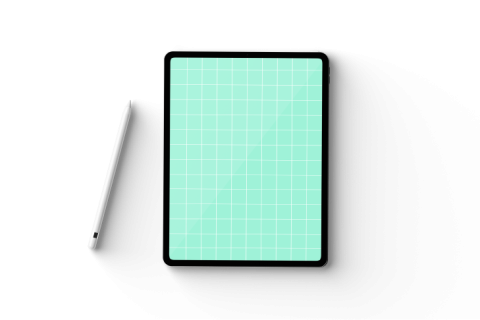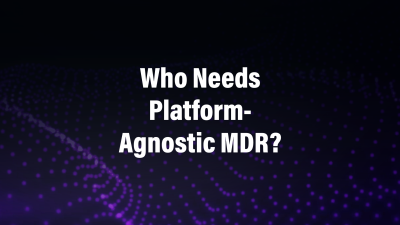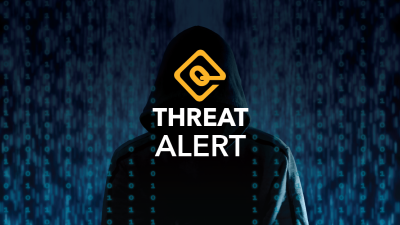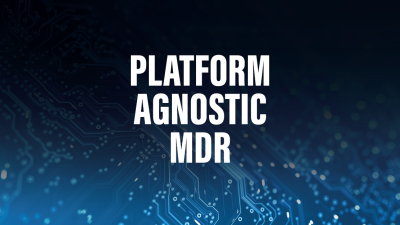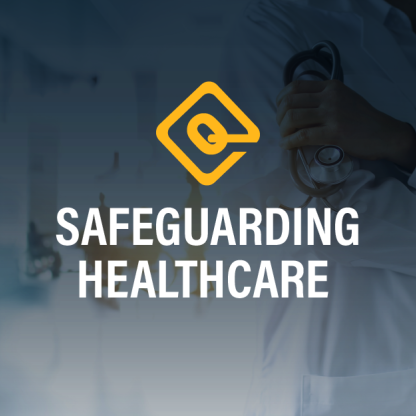
Safeguarding Health: The Growing Threat Landscape Facing Healthcare
In an era where technology is deeply embedded in every aspect of our lives, the healthcare industry is no exception – and cybercriminals have taken notice. Earlier this week, Ardent Health Services, which manages 30 hospitals across the U.S., disclosed a crippling ransomware attack that effectively shut down their ability to care for non-critical patients across three states. As of publishing, the ransom has not been paid and their systems remain offline.
This event provides yet another sobering reminder of the vulnerable digital health infrastructure and the importance of safeguarding it with proactive security.
MDR and the Critical Role of Cybersecurity in Healthcare
Healthcare organizations store vast amounts of sensitive data, ranging from patient records and medical histories to financial information. This wealth of data makes them an attractive target for cybercriminals seeking to exploit vulnerabilities for financial gain or malicious intent, knowing that the sensitivity of the data increases the likelihood of payment. The increasing frequency and sophistication of cyberattacks pose a significant threat to the stability and reliability of healthcare services.
Managed Detection and Response (MDR) solutions provide 24/7/365 monitoring, analysis, alerting, and incident response – providing a team of cybersecurity experts that become an extension of the in-house infrastructure. For healthcare companies, MDR can play a pivotal role in ensuring the integrity, confidentiality, and availability of sensitive health-related information. Here’s a few examples:
-
Patient Confidentiality. One of the primary concerns in healthcare cybersecurity is the protection of patient confidentiality. Breaches of patient data can lead to severe consequences, including identity theft, insurance fraud, and compromised medical histories. MDR plays a crucial role in detecting and mitigating threats before they escalate, ensuring that patient information remains confidential and secure.
-
Operational Continuity. In healthcare, downtime can have life-threatening consequences. Cyberattacks, such as ransomware that Ardent Health is dealing with, can cripple operations, preventing access to critical patient records and disrupting the delivery of care. MDR helps healthcare companies maintain operational continuity by swiftly identifying and neutralizing threats, minimizing the impact on essential services and patient care.
-
Regulatory Compliance. Healthcare organizations are subject to stringent regulations, such as the Health Insurance Portability and Accountability Act (HIPAA) in the United States. Failure to comply with these regulations can result in severe legal consequences and reputational damage. MDR not only helps organizations detect and respond to security incidents but also ensures compliance with industry-specific regulations, safeguarding the organization from legal and financial repercussions.
-
Proactive Threat Detection. Traditional cybersecurity measures are reactive, addressing threats after they have occurred. MDR takes a proactive approach by continuously monitoring networks, identifying anomalous activities, and responding in real-time. This proactive stance is crucial in the healthcare sector, where the consequences of a breach can be catastrophic.
As healthcare leans into digital innovation, the need for robust cybersecurity measures, such as continuous MDR, becomes increasingly evident. Organizations can also lean on peer industry groups, such as H-ISAC, which focuses on crowdsourced intelligence shared amongst other healthcare security practitioners. Industry groups like this provide timely, actionable, and relevant information that the community can act on, including intelligence on threats, security incidents, and vulnerabilities.
Investing in cybersecurity is not just a choice for healthcare companies; it's an ethical obligation to patients and a critical step toward building a resilient and secure healthcare ecosystem. By prioritizing cybersecurity and embracing MDR, healthcare organizations can fortify their defenses against this rising threat landscape, ultimately ensuring the trust and well-being of those they serve.
To learn more, contact us.
